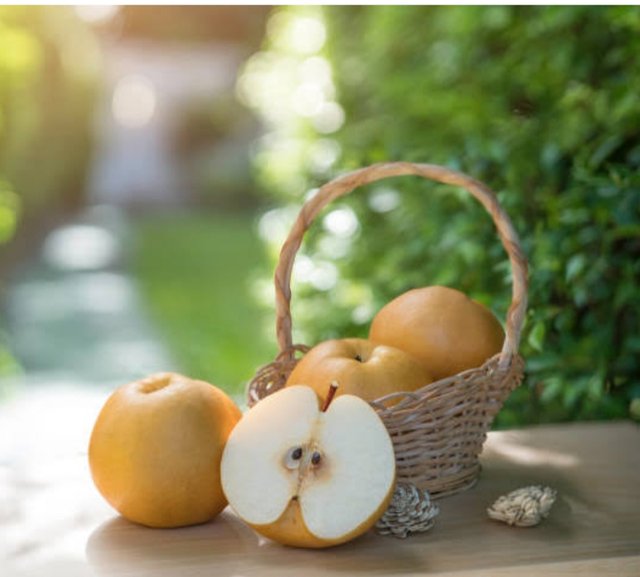A Combination of Taste and Health: A Fresh and Juicy Pear
- Introduction to Pear
Pears are grown in many parts of the world, especially in Asian countries like China, Korea, and Japan. This fruit can be round or cylindrical, with skin that is golden, yellow, or light green. Its taste is sweet, juicy, and slightly crispwhich makes it distinct from other pear varieties
- Nutritional Elements of Pear
Pears contain several essential nutrients. They are rich in fiber, vitamin C, potassium, and antioxidants. Approximately the following nutrients are found in 100 grams of pear:
Calories: 57
Carbohydrates: 15 grams
Fiber: 3 grams
Vitamin C: 7% of daily requirement
Potassium: 120 mg
These nutrients not only provide energy to the body but also support heart health, digestion, and immunity
Health Benefits of Eating Pear
Improves Digestive Health:
Pears are high in fiber, which is beneficial for gut health. It reduces constipation and helps in better digestion.Heart Health:
Potassium helps regulate heartbeat and maintain balanced blood pressure. Regular consumption of pears may reduce the risk of heart-related diseases.Weight Management:
Pears are low in calories and high in fiber, keeping you full and reducing hunger. This aids in maintaining a healthy weightBeneficial for Skin and Hair:
Vitamin C acts as an antioxidant and enhances skin glow. It also aids collagen production, keeping the skin youthful.Boosts Immunity:
Antioxidants and vitamins help the body fight infections and diseasesHow to Consume Pear
You can eat pears directly, add them to salads, or drink them as juice. Some people also use them in soups and desserts. Fresh pear consumption is the most beneficial.
Types of Pears
Asian Pear: Round, sweet, and slightly crisp.
European Pear: Long and thin, more juicy and sweet in taste.
Seckel Pear: Small and extremely sweet.
Cultivation of Pear
Pear cultivation requires a cold climate and good soil. The fruit grows on trees, and careful attention is needed during cultivation to ensure healthy and juicy fruits
- Pear Benefits for Children and Elderly
For Children: The fruit is sweet and safe. Its nutrients promote growth and enhance immunity.
For Elderly: Fiber, potassium, and antioxidants are beneficial for heart and bone health
- Storage of Pear
To keep pears fresh for a longer time, store them in a cool and ventilated place. When kept in the fridge, they remain fresh for 2–3 weeks. Cut pears should be stored with lemon juice to prevent browning
- Interesting Facts About Pear
Pears contain about 84% water, which helps keep the body hydrated
This fruit is considered a symbol of health and longevity in many Asian cultures
Pears are called a “super fruit” because they excel in both taste and nutrition
- Conclusion
Pears are not just a delicious fruit but also a treasure of health and nutrition. Regular consumption promotes digestion, heart health, weight management, and immunity. Due to its sweet, juicy, and crisp taste it is suitable for people of all ages.
If you want to adopt a healthy lifestyle, include pears in your daily diet. They are a simple, tasty, and healthy option that provides natural sweetness,energy, and essential nutrients to the body
